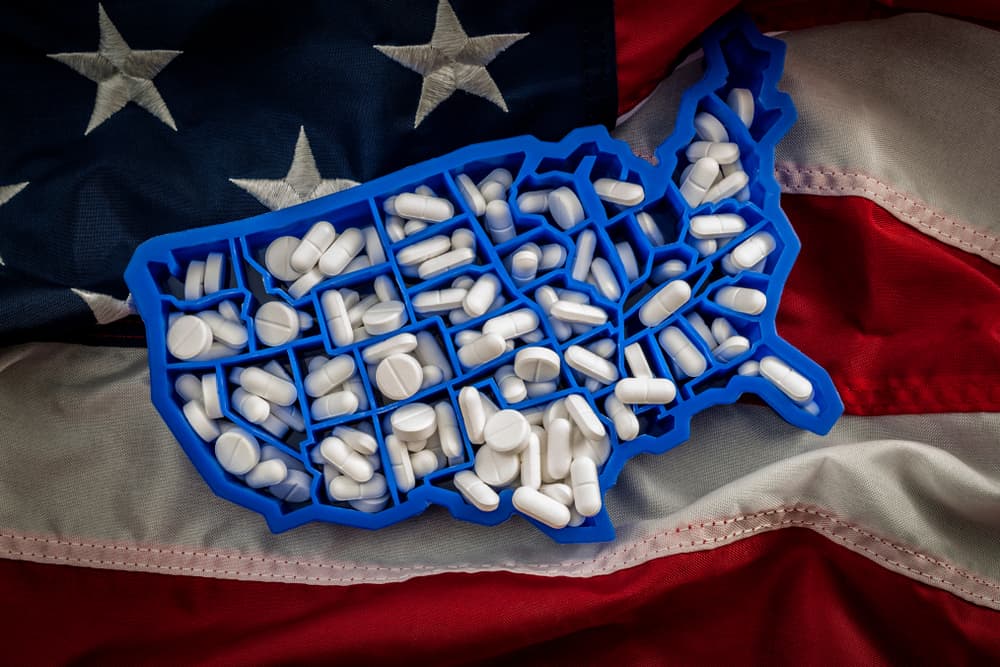Gone are the days of saying the alphabet backwards. Nowadays, if you are pulled over on suspicion of driving under the influence – be it alcohol or another substance – the police have numerous ways to detect what’s in your system. With breathalyzer tests, urine samples, saliva tests, and blood tests, they can detect whether or not you’re driving with something in your system.
Here in Missouri, having drugs in your system (prescription or otherwise) is only a violation if you are behind the wheel of a vehicle, but any level of drug in your system may lead you to be charged with Driving Under the Influence. If you take any prescription drug which contains a warning about operating heavy equipment or machinery, you may be charged with a DUI/DWI if you are pulled over or get into an accident. Call Combs Waterkotte today at (314) 900-HELP for help.
Can I Refuse a Test?
In Missouri, you give your consent to being tested simply by using public highways. If you refuse, your license will be suspended for one year, and you will most likely be charged with a DWI regardless of what’s really in your system based on the officer’s evidence.
Can I Get a DWI/DUI Conviction Expunged?
No, in Missouri you cannot have a DWI/DUI conviction expunged (removed) so it will remain on your criminal record and driving record forever, which is why it’s so important to have an experienced and confident DUI attorney on your side.
Do DWI Laws in Missouri Deal with Prescription Drugs?
The punishments and penalties for driving under the influence of any drug are the same as driving under the influence of alcohol in Missouri. Besides the criminal punishments, you’ll also have eight points added to your driving record if you are convicted for a Driving Under the Influence of Drugs (DUI-D).
The maximum penalty for a first-offense DUI-D is six months in prison, a fine of $500, a driving ban, and is considered a Class B misdemeanor, so if you’ve been arrested for a DUI for prescription drugs hire a DUI attorney to help you get the best outcome possible.
What Should You Be Aware of When Taking Prescription Drugs and Driving?
Be aware that many prescription drugs can alter your perception and a cocktail of prescribed drugs may have an even more severe effect. Taking more than the prescribed dose may put you in a difficult position, even if there aren’t any warnings in the drug’s documentation about operating heavy machinery, as can mixing different prescription drugs.
Remember that drugs affect everyone differently, so just because one person feels completely normal on the drug you’ve been prescribed, it doesn’t necessarily you will be okay to drive. If the drugs you are prescribed alter your reaction times, impair judgment, make you feel sluggish or drowsy, or cause your muscles to relax or twitch, they may cause you to get a DUI.
You should also be aware that a doctor’s note will not excuse you from a DUI.
Are Any Specific Prescription Drugs More Likely to Get You a DWI?
Everyone reacts to drugs differently, so it is difficult to narrow down specific medications which will result in a DWI charge. However, some medications you need to be wary of when getting behind the wheel, are:
- Medical Marijuana (this is not legal under any circumstances)
- Sleeping Aids
- Valium (just 10mg can cause a level of impairment comparable to 0.10 blood alcohol)
- Antidepressants (especially if they have a sedating effect)
- Decongestants (cold and flu medications)
- Antihistamines (some slow reaction times)
- Anti-anxiety medication
- Hydrocodone (in Vicodin, has similar effects to opiates and codeine)
How Are Prescription Drugs Detected?
Prescription drugs will not show up in a breathalyzer test, but as a Missouri road user, you agree to testing by blood, urine, or saliva if an officer believes you are under the influence. Many drugs show up in a urine or blood test for hours, days, or even weeks after taking.
There are “Drug Recognition Experts” (DREs) who are officers who have undergone specific training to spot visual signs of drug impairment in motorists, such as eye movements, color and dilation, behavior and movement, and other cues.
What Should You Say if You are Pulled Over and Charged Because of Prescription Drugs?
If you are under the influence of a prescription drug and are pulled over by an officer or involved in an accident, provide them with your insurance and registration and comply with their requests if they ask you to get out of the vehicle. Be aware that if they believe you are impaired they will watch to see how you get out of the vehicle and if there are any signs that you aren’t in full control of your faculties.
If they ask you to submit to sobriety tests beyond a breathalyzer, and are under the influence of a drug, politely inform the officer that you need to call a criminal lawyer. If you have not consumed any alcohol or are below the legal limit, it won’t hurt (and may help) you to submit to the breathalyzer test.
If you refuse the tests, they may choose to arrest you then and there or ask you further questions, but continue to inform them that you won’t answer any questions until you’ve spoken to your lawyer.
At this point, the officer will read you Missouri’s Implied Consent Warnings (which are that by being a road user you agree to submit yourself to blood or urine tests) because they believe you to be intoxicated in some way. Comply with the police until you have spoken to your lawyer, who will tell you the best course of action. They will not be able to prevent you from being tested, but they can put you in the best position possible should the results come back in a way that may incriminate you for prescription drug use.
Don’t plead guilty, even if you feel you are. Let an experienced criminal defense attorney speak for you.
5 Tips to Help You Avoid a Prescription Drug DUI
1.) Read side effects and recommendations of prescription drugs carefully
If you are prescribed medication read any documentation provided to see if it warns you against driving or operating machinery. If they recommend that you do not drive while taking the medication, follow those instructions. If you need to drive to function in your day-to-day life, stop driving until you have spoken to your doctor and see if it is possible to use a different, safer medication.
2.) If you feel drowsy or not quite yourself, don’t drive
This doesn’t just go for the first time you take a new prescription drug, but at any time while you take the drug or when you get behind the wheel. You may eat or take something that reacts with your medication in a way that makes you feel dizzy or unable to focus, so if at any time you feel unsafe, pull over as soon as you can.
3.) Consult with your doctor or pharmacist
If you aren’t sure, talk to your doctor or pharmacist about whether or not they believe it is safe for you to drive. If they don’t believe this medication is suitable, ask them if there is an alternative drug with similar benefits which is more suitable for someone who needs to be able to drive.
4.) Don’t misuse your prescriptions
Misusing your own prescription drugs is just as dangerous as misusing someone else’s, so if you feel the urge to take more than the recommended dose do not get behind the wheel of a vehicle and contact your doctor for advice or to have your dosage increased. It can be tempting to take more than prescribed if in pain, but if you need to do this stop driving until you have spoken to a doctor about whether or not it is still safe for you to drive.
5.) Have an experienced DUI-D attorney
While having the best criminal defense attorney in St. Louis won’t be able to prevent you from being pulled over by the police in the first place, they will be able to manage the situation and get you the best outcome possible, as unlike driving under the influence of alcohol, you can make a better case for not fully comprehending what effect the drugs were having on you, or whether your behavior was caused by the drugs at all.
Hire A Leading St. Louis Prescription Drug DWI Attorney
If you’ve been accused of driving while under the influence of prescription drugs in the St. Louis Metro area, it’s vital you talk to an experienced DUI/DWI attorney as soon as possible. A prescription drug charge is just as serious as a DUI accusation for illegal drugs or alcohol, but an experienced St. Louis DUI lawyer will be able to ensure you get the best outcome possible. Contact Combs Waterkotte or call us at (314) 900-HELP today to arrange a free consultation to ensure you get the very best outcome possible. All of our clients have access to their attorney 24/7 – so you can rest easy knowing your lawyer will fight for you.







